Posted on 11/18/2022
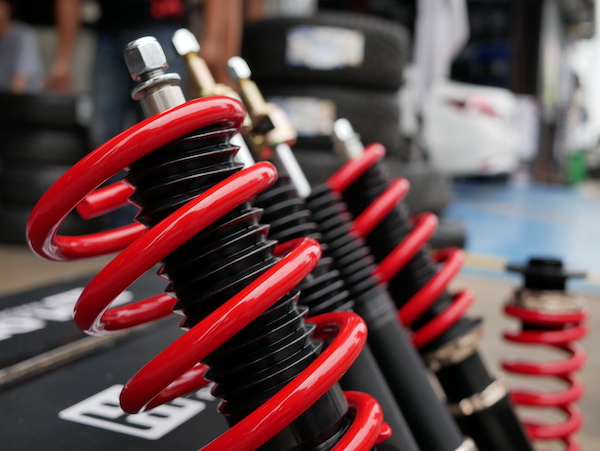
How to Tell If You Need Suspension Repairs The vehicle’s suspension system comprises many parts that work together to give you a smooth, safe, and comfortable ride. More importantly, it impacts how your vehicle drives and brakes. In fact, poor suspension can decrease your brake distance or time by up to 20%. Therefore, driving with bad shocks and struts can be dangerous. We are here to educate you on how to spot worn suspension parts. What Are the Tell-Tale Signs of Bad Suspension? Excess bounciness - especially after driving over bumps Drifting on turns - indicates shocks are not sufficient to hold the vehicle’s body against the force of a turn Uneven tire tread - uneven tire patterns and random bald spots can translate as a result of poor suspension Braking problems - reduced brake time and front end of the vehicle dips when braking Oily appearance on shocks/struts - this happens when the seal is cracked, indicating that they need to be replaced Failed boun ... read more
Posted on 10/29/2022
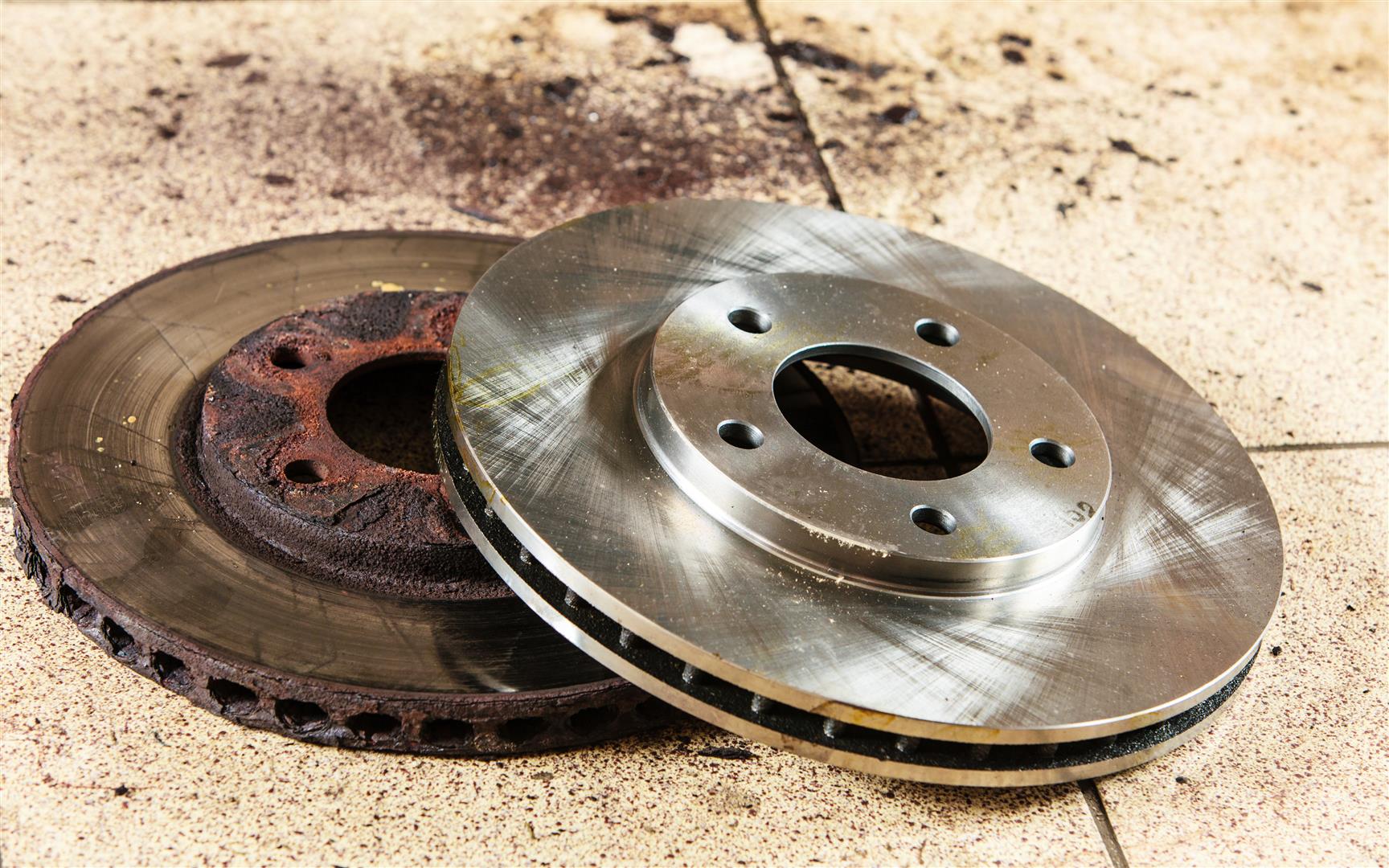
If you take care of your brake rotors, they can last much longer than brake pads. But how would you tell when it's time to replace your rotors? When Do You Need a Brake Rotor Replacement? Vibration in The Brake Pedal and Steering Wheel (Brake Pulsation) If your vehicle vibrates whenever you brake, it might be a sign to change your brake rotors. Such a situation occurs because of built-up brake pad deposits. The deposits are usually brake pad material that accumulates on the surface of your brake rotors and develops uneven spots. These brake pad deposits arise because of several factors. These may include a brake system subject to extreme heat, uneven clamping because of seized brake pistons, and incorrectly fitted pads. Loud Grinding Noises When Braking If you hear grinding noises whenever you're applying the brakes, there's a high likelihood that your brakes are corroded. If your car's brake system parts deteriorate, they'll grind against eac ... read more
Posted on 9/26/2022
.jpeg)
A leak in your vehicle means that there could be a serious systemic issue with your car, no matter what the make. Some fluids that can leak include power steering fluid, coolant, and engine oil. If any of these fluids leak, you've got a problem – that we can fix! Leaks are also bad for the environment, so it's all that more imperative to take care of your car as a system that runs fully fluidly and functionally! Some basic ways to tell if your car is showing signs of a leak are in the residue and the distinctive odors that may present, as well as a variety of colors that correspond to different leakage problems. For instance, brake fluid is distinguishable from engine oil in that the former is slick, oily, and clear/yellow/brown; while the latter is slick and oily but brown or black. To go into more detail about how to diagnose different leaks, here are some of the properties of each (other than the above mentioned) that can help you and your repair person get to the bo ... read more
Posted on 8/30/2022
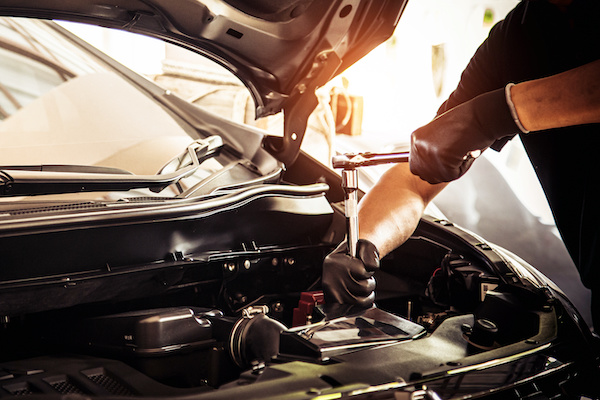
Hearing weird and unusual noises can be scary and alarming, especially if it is coming from under the hood. These things can range anything from a loose component or point to catastrophic damage. If it is coming from the engine in particular, it can be costly. So, read on to learn more about the certain noises that your engine can make and what they may indicate: Clicking If you overheat a clicking or ticking sound, it can be due to poor oil pressure in the engine. You might see the indicator on your dashboard soon after. However, a clicking noise can also signal worn valves or other engine components. Pinging or Knocking If you hear pings when accelerating your vehicle, it can be due to a number of factors. First off, you should make sure that you’ve been using the right level of octane fuel. If your manufacturer recommends mid-grade or premium, please use it. Next, knocking can signal an ignition timing problem. To be sure, please have your timing belt inspected to ma ... read more
Posted on 7/28/2022

Having a car makes you feel proud. Each car requires proper handling to provide the comfort and durability you desire. Some driving habits seem fun until you have to go back into your pocket to pay the high price of repairs. Here is a list of bad driving habits and how to prevent them. Neglecting your fuel tank: To save money, you may occasionally fill only a small amount of gas.While it might save you money, it'll kill your car. A car's fuel pump works best when filled with liquid fuel—running your engine on low diesel damages the fuel pumps. Don't start your car when it's almost out of gas. It'll damage the ignition system. Speed Switching from Reverse to Drive: Sudden changes in direction while speeding up the shift from reverse to drive can be hard on your car's transmission system. To keep your car's transmission from getting damaged, stop and put it in the right gear. Ignoring dashboard warning lights: Please don't ignore the warning ligh ... read more
Posted on 6/27/2022
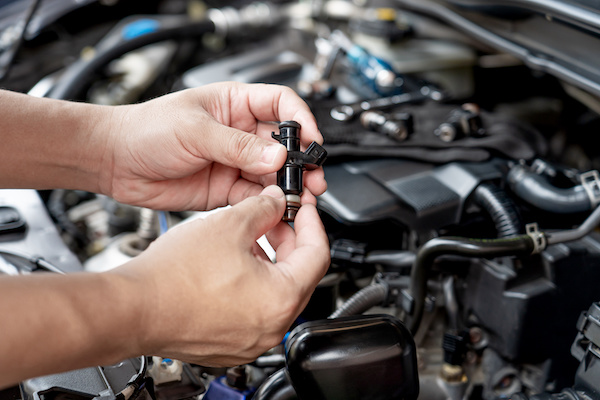
Fuel injectors are an often overlooked piece of your vehicle. They are the components that receive fuel from the fuel pump and spray it into the intake manifold to power your engine. While this may sound simple, it is a very precise process. Your vehicle needs a balanced air-fuel ratio to compress. Engines with fuel injectors have more power than carbureted engines. That is why these components require service to keep your car on the road longer. Signs of Dirty or Clogged Fuel Injectors Engine Misfires - These are common side effects of bad fuel injectors. You may feel a series of vibrations when your car misfires due to the unbalanced fuel mixture. To be sure that it is your fuel injectors, please come by our shop for a diagnostics test. Rough Idling - When your vehicle sputters or shakes when your car is stopped, it is never a good sign. If your injectors are clogged, it will block the necessary amount of gasoline from going through. Problem with Car Starts - The in ... read more
Posted on 5/25/2022
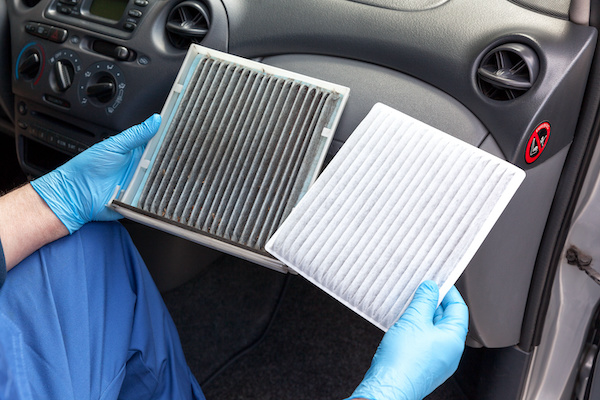
The cabin filter is an often overlooked area of the car because it doesn’t directly impact the drivability of the vehicle. However, it is extremely important for drivers to pay attention to the condition of their cabin air filter as it could affect your comfortability. A cabin air filter promotes clean air by blocking out contaminants from entering the passenger cabin. It can deter harmful things like dirt, smoke, dust, exhaust fumes, pollen, and more. However, this filter will collect too much over time and require a change. What Can Happen If You Neglect a Dirty Cabin Air Filter HEALTH ISSUES - Breathing in unclean air can be damaging to your health. For individuals who are sensitive to dust, pollen, and smoke fumes, it can be horrible. Therefore, you should make a good habit of replacing your cabin air filter as much as you can to ensure that the air you’re breathing in is clean. OVERWORKED HVAC SYSTEM - When the cabin filter is clogged, the v ... read more
Posted on 4/27/2022
.jpeg)
Few drivers take the time to read their car owner's manual until there is a problem. It is good practice to read and be familiar with the manual as it contains valuable information that you may need in the case of a breakdown. Operating Instructions Key features of your car are contained in the operating instructions. Using the windscreen wipers at the right settings or learning how to activate Bluetooth controls are important features to note before you set off on your maiden voyage. This will help you to avoid taking your eyes off the road at crucial moments. Vehicle Maintenance You will find an engine overview and maintenance instructions in the owner's manual. You can learn how to do your basic jobs such as how to check engine oil, replace filters, adjust headlights and replace bulbs. It may also provide a maintenance schedule and when to replace certain parts such as spark plugs. Warning Lights Sometimes, a warning light is a catalyst to open your manual for the very ... read more
Posted on 3/28/2022

After years or even months of driving your vehicle, you become accustomed to the way that it sounds while driving. You get into your car one morning and start driving, only to hear a strange pinging noise coming from the engine. We know that hearing a strange noise can be stressful, especially when you are unsure if the sound indicates a problem with your vehicle. As soon as you start hearing something out of the ordinary, it's important to make a mental note of when the sound happens, what it sounds like, and where the sound is coming from. Oftentimes you may also notice that the check engine light has turned on, but not always. When the noises start, we recommend bringing your vehicle into our shop as soon as you can. When you come into our shop, be sure to inform our experts about the symptoms that you are experiencing. This will help our mechanics better pinpoint the issue. We will perform a full inspection of your vehicle to find the source of the noise. If the check engine ... read more
Posted on 2/25/2022
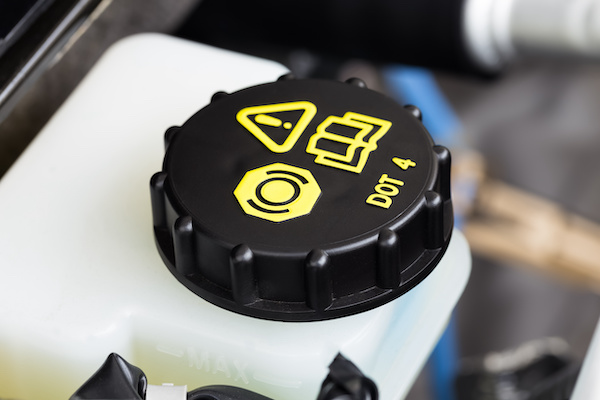
Driving a vehicle may be intimidating to maintain for both newbies and the experienced. You may know that your vehicle's most important safety feature is its brakes. And clean brake fluid is necessary to achieve seamless and efficient braking. You should never put off brake maintenance, as failing to change your brake fluid on time can put your life on the line. How to Check Brake Fluid Inspecting the brake fluid is a relatively easy task because the tank that carries it is see-through. All you'd have to do is open the hood and locate the transparent reservoir. It would be best if you never opened the brake fluid reservoir unless you plan to replace the solution right away. Leaving the cap open may risk diluting and contaminating the fluid itself. When checking the levels of your brake solution, be sure to take note of its color too. It should be yellow and free of contaminants. If you notice that your brake fluid looks muddy, low, or has a burnt smell, please bring your car ... read more